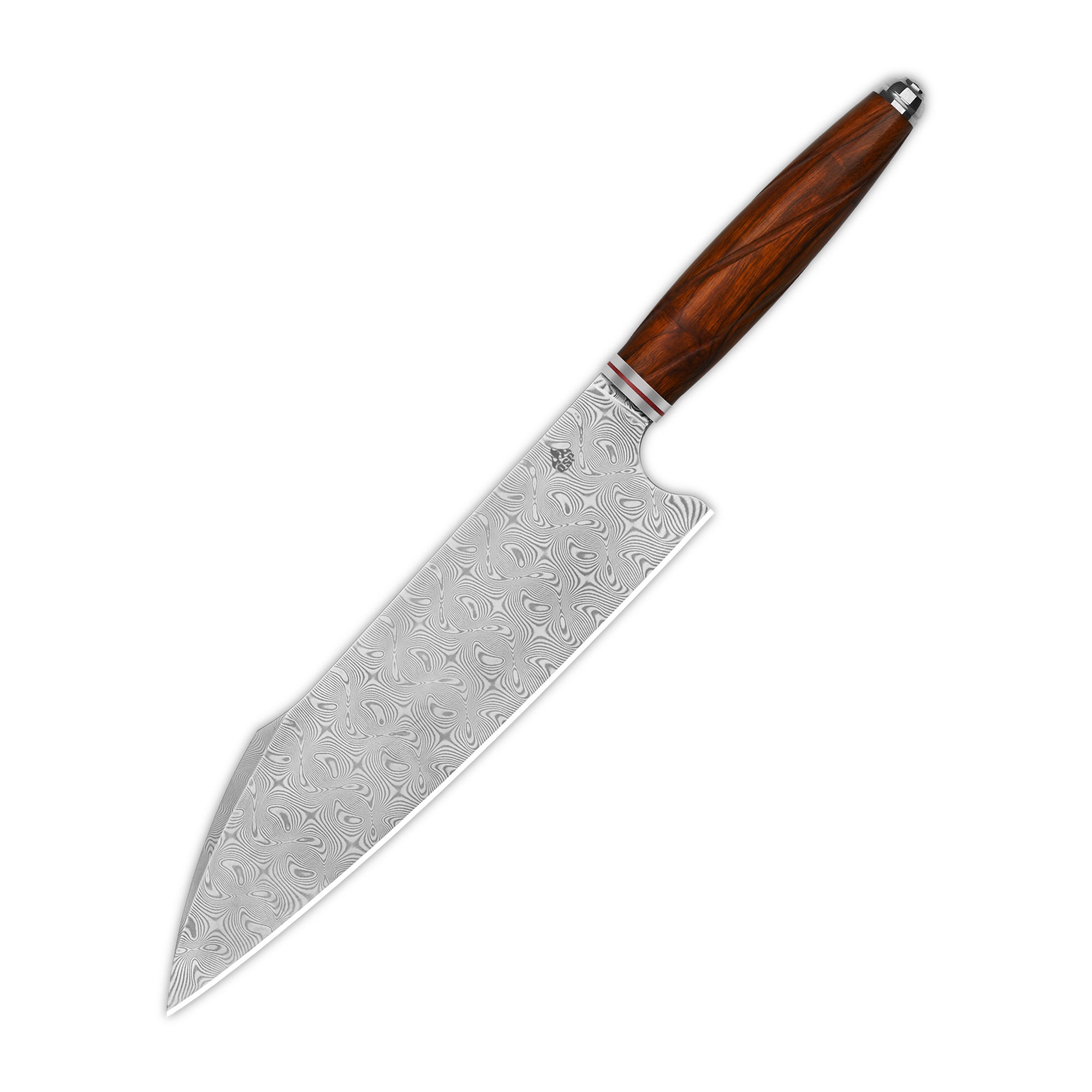When it comes to culinary excellence, the chef knife is an indispensable tool in any kitchen. This versatile instrument is designed to handle a variety of tasks, from chopping vegetables to slicing meat. But how do you choose the perfect chef knife that meets your needs? In this guide, we will explore the key factors to consider when selecting a chef knife, ensuring you make an informed decision.

Understanding the Types of Chef Knives
Chef knives come in various shapes and sizes, each designed for specific tasks. Here are some common types:
- Traditional Chef Knife: Typically 8 to 10 inches long, this knife is ideal for general chopping and slicing.
- Japanese Gyuto: A thinner blade that excels in precision cutting, perfect for delicate tasks.
- Petty Knife: A smaller knife used for intricate work, such as peeling and trimming.
Understanding these types can help you determine which chef knife best suits your cooking style. Do you often prepare large meals, or do you focus on intricate dishes? Your answer will guide your choice.
Materials Matter: Choosing the Right Blade
The blade material significantly impacts the performance and longevity of your chef knife. Common materials include:
- Stainless Steel: Known for its resistance to rust and corrosion, stainless steel is a popular choice for many chefs.
- High Carbon Steel: This material offers excellent sharpness and edge retention but requires more maintenance to prevent rust.
- Damascus Steel: Renowned for its beauty and strength, Damascus steel combines multiple layers of steel for a unique look and performance.
When selecting a blade, consider how much maintenance you are willing to commit to. If you prefer low-maintenance options, stainless steel might be the best choice.
Handle Comfort and Design
The handle of your chef knife is just as important as the blade. A comfortable grip can enhance your cutting experience. Here are some factors to consider:
- Material: Handles can be made from wood, plastic, or metal. Each material offers different levels of comfort and durability.
- Shape: A well-designed handle should fit comfortably in your hand, allowing for a secure grip.
- Balance: A well-balanced knife feels more natural and reduces fatigue during extended use.
Have you ever experienced discomfort while chopping? A well-designed handle can make all the difference.
Maintenance Tips for Longevity
To ensure your chef knife remains in top condition, proper maintenance is essential. Here are some tips:
- Regular Sharpening: Keep your knife sharp for optimal performance. A dull knife can be dangerous and less effective.
- Proper Cleaning: Hand wash your knife with mild soap and dry it immediately to prevent rust.
- Storage: Use a knife block or magnetic strip to protect the blade and maintain its sharpness.
By following these maintenance tips, you can extend the life of your chef knife and enhance your cooking experience.
For those looking to explore a variety of high-quality kitchen knives, consider visiting . This resource offers an extensive selection of chef knives tailored to meet diverse culinary needs.
Conclusion
Choosing the perfect chef knife is a crucial step in enhancing your culinary skills. By understanding the types, materials, and maintenance requirements, you can select a knife that not only meets your cooking style but also lasts for years to come. Remember, a well-chosen chef knife can transform your kitchen experience, making cooking more enjoyable and efficient.








